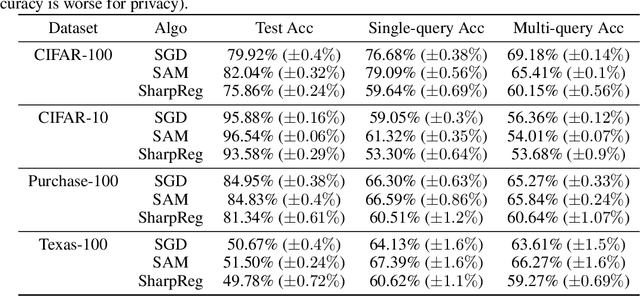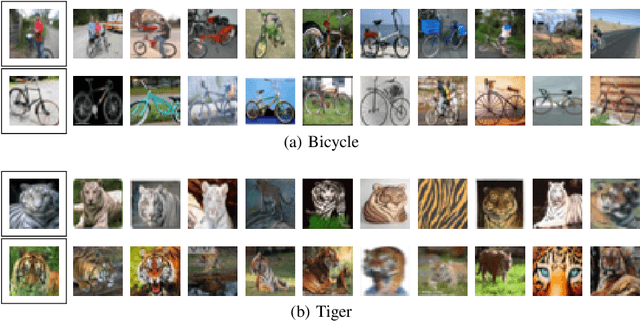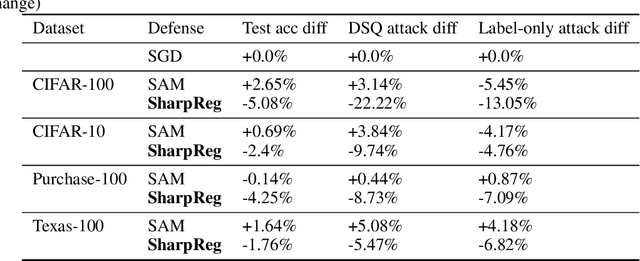On Memorization and Privacy risks of Sharpness Aware Minimization
Paper and Code
Sep 30, 2023



In many recent works, there is an increased focus on designing algorithms that seek flatter optima for neural network loss optimization as there is empirical evidence that it leads to better generalization performance in many datasets. In this work, we dissect these performance gains through the lens of data memorization in overparameterized models. We define a new metric that helps us identify which data points specifically do algorithms seeking flatter optima do better when compared to vanilla SGD. We find that the generalization gains achieved by Sharpness Aware Minimization (SAM) are particularly pronounced for atypical data points, which necessitate memorization. This insight helps us unearth higher privacy risks associated with SAM, which we verify through exhaustive empirical evaluations. Finally, we propose mitigation strategies to achieve a more desirable accuracy vs privacy tradeoff.
 Add to Chrome
Add to Chrome Add to Firefox
Add to Firefox Add to Edge
Add to Edge